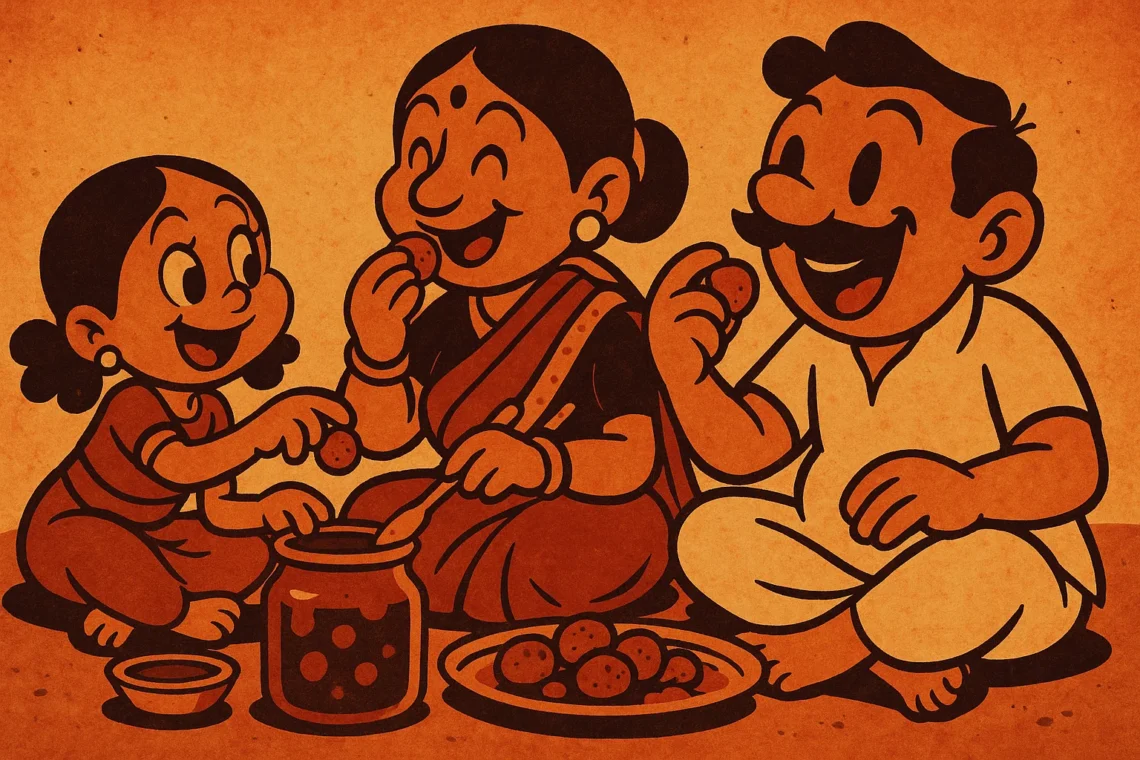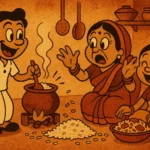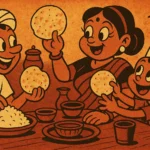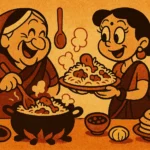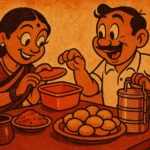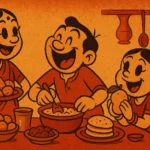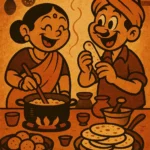It sat on the top shelf of the kitchen cabinet, next to the jars of roasted papad and forgotten baking soda. Big, heavy, and usually sun-warmed from its stint on the window sill, our pickle jar wasn’t just a container — it was a minor deity. Everyone respected it. No one questioned it. And yes, our pickle jar had rules.
The jar itself was made of dark glass — the kind that looked like it had seen things. Tightly sealed, sometimes double-wrapped in an old dupatta to protect it from “too much light,” and always approached with a mix of reverence and fear. Because as everyone in the house knew, if you broke a pickle rule, the wrath wasn’t slow. It was swift. Usually maternal. Occasionally divine.
Rule One: No Wet Spoons
The first and most important rule. This one was tattooed onto our souls. Wet spoons were the enemy. They were chaos, mildew, and dishonor. My mother would appear out of thin air the moment a damp spoon hovered near the jar. “Soggy ho gaya na toh kharab ho jayega!” she’d say. If you ever forgot, you’d remember forever. I once tried to dip a spoon straight from the sink. I was 9. I still hear the echo of the scolding.
Rule Two: No Double Dipping
If you took some mango pickle, that was it. You committed. You didn’t come back for seconds with the same spoon. This wasn’t tomato ketchup. This was centuries of preservation science, spice layering, and emotional investment. The bacteria on that spoon? Untested. Unsafe. Unwelcome.
And God forbid you used a steel spoon when a wooden one was already assigned to the jar. There were tools. Protocols. A way things were done. You didn’t argue with tradition. You just followed it — or ate your paratha plain.
Rule Three: No Opening It in the Rain
Pickles had moods, and monsoon was not one of them. During heavy rains, the jar stayed sealed. Humidity was apparently the villain in this preservation saga, capable of turning a lovingly spiced batch of lemon pickle into an unrecognizable, fermented crime scene. I didn’t fully understand the science, but I understood the stakes.
If the skies opened up and thunder rumbled, my mother would look up from her newspaper and say, “Don’t even look at the pickle jar today.” It was both superstition and lived experience, and I wasn’t going to test either.
The Pickle Hierarchy
Not all pickles were equal, and neither was their treatment. Mango pickle — the classic, the king — had the most rules. Amla pickle, medicinal and sharp, could be opened in winter only, and even then you were expected to eat it like you were doing your gut a favor. Lime pickle, with its oil glistening like molten gold, was for special occasions. Green chilli pickle? That one came with warnings, not rules.
And then there was the “new” batch. Always kept separate until it had aged enough to earn its place on the main shelf. Sometimes, you’d be tricked into opening the new jar too early. Too raw, too sharp. A reminder that some things need time. That pickles, like people, mellow with patience.
The Spoon Was Never Just a Spoon
What fascinated me most, years later, was how something as small as a spoon could hold so much power. In our home, it was a test of trust. Were you old enough to serve yourself? Could you be trusted not to kill the pickle with a wet, clumsy scoop? The day my mother handed me the designated pickle spoon without comment — no warnings, no watchful eyes — I felt like I’d passed a secret rite of passage.
And what a reward it was. A dollop of mango pickle on hot aloo paratha. Just enough to sting your tongue, make your eyes water slightly, and remind you that food could be fierce and comforting at the same time. That tiny blob of flavor transformed the meal. The spice cut through everything — sleepiness, boredom, even homesickness.
Now I Have My Own Jar
Living in Austin, I don’t have my mother’s pickle jar. But I have one I bought from an Indian grocery store, filled it myself, and now guard it with a fervor I once rolled my eyes at. I use dry spoons. I don’t open it when it rains. And once, when my roommate dipped a wet butter knife into the jar — yes, a butter knife — I didn’t yell, but I did make a mental note to hide the jar going forward.
Because the truth is, our pickle jar wasn’t just about food. It was about care. About respect. About honoring the labor of the hands that chopped, sun-dried, spiced, and sealed. It was about preserving more than just fruit — it was about preserving rhythm, memory, and discipline.
So yes, our pickle jar had rules. And maybe now, thankfully, so does mine.
Born in Mumbai, now stir-frying feelings in Texas. Writes about food, memory, and the messy magic in between — mostly to stay hungry, sometimes just to stay sane.

